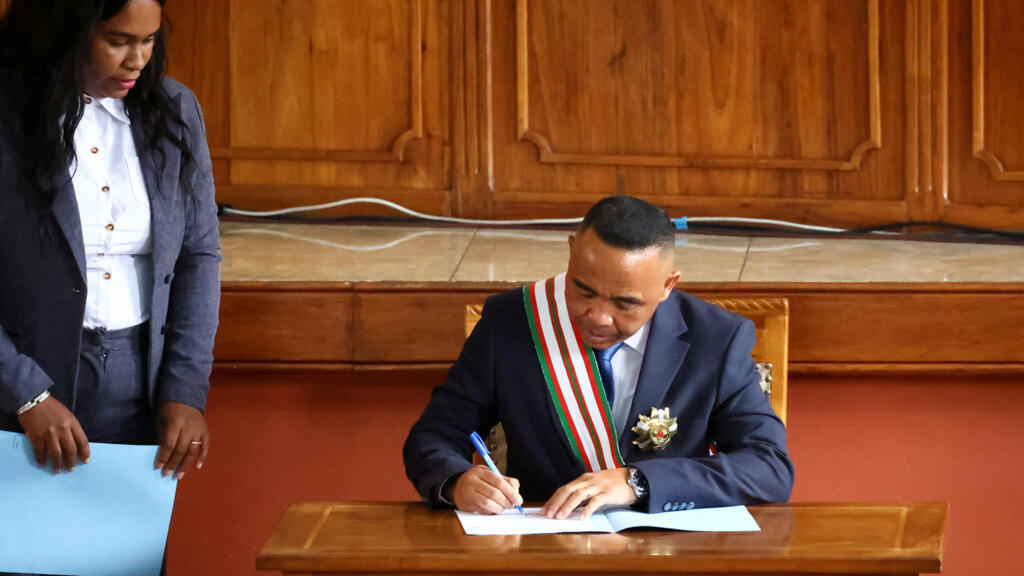Colonel Michael Randrianirina has officially assumed the presidency of Madagascar, following the forced departure of former president Andry Rajoelina. The transition of power occurred amidst growing anti-government protests, which culminated in Rajoelina fleeing the country. Randrianirina, a 48-year-old former commander of the Malagasy Armed Forces, has been sworn in as the new leader in a shift that could reshape the island nation’s political landscape.
The unrest in Madagascar has been mounting for several months, with widespread protests against the government’s handling of the economy, corruption scandals, and general dissatisfaction with leadership. Rajoelina, who had been in office since 2009, faced mounting pressure to step down after allegations of mismanagement and failing to address the country’s significant challenges. The protests, which were initially peaceful, turned violent in the weeks leading up to Rajoelina’s departure. Demonstrators, frustrated by economic instability and government failures, clashed with security forces in the capital, Antananarivo, and other major cities.
In the wake of Rajoelina’s departure, Randrianirina’s rise to power appears to be a result of both military backing and the increasing public demand for change. A seasoned military leader, Randrianirina has previously served in key roles within Madagascar’s armed forces, including as a high-ranking officer overseeing the country’s security forces. His leadership is expected to bring stability to a nation that has seen years of political turmoil, but his military background has also raised concerns regarding the potential for a return to authoritarian rule.
Randrianirina’s inauguration ceremony took place under heavy security, with military personnel surrounding the main government buildings in Antananarivo. Speaking at the event, the new president pledged to restore order, strengthen national unity, and address the issues that have plagued the country for years. He promised to combat corruption and implement much-needed economic reforms, although specific details on his policy agenda remain unclear.
The international community has expressed mixed reactions to the change in leadership. While some foreign governments have congratulated Randrianirina, others have voiced concerns about the potential for political instability. The United Nations and the African Union, in particular, have called for a peaceful transition and respect for democratic processes. There is a fear that Madagascar could experience a prolonged period of unrest, especially if military rule becomes entrenched.
Economic challenges in Madagascar are considerable, with widespread poverty, high unemployment rates, and a dependence on foreign aid. The new president will face immense pressure to address these issues quickly. Madagascar’s economy, which is heavily reliant on agriculture, has been struggling with low productivity, exacerbated by climatic changes and inadequate infrastructure. Additionally, the COVID-19 pandemic severely impacted trade and tourism, which are crucial sectors for the nation’s economic recovery.
Social divisions within Madagascar are also a significant concern. The island nation is home to a diverse range of ethnic groups, and there are ongoing tensions between various communities. One of Randrianirina’s key challenges will be to heal these divides and foster a more inclusive political environment. His leadership will likely be scrutinised closely by both domestic and international observers, as many will be watching to see whether he can deliver on his promises of reform and stability.

